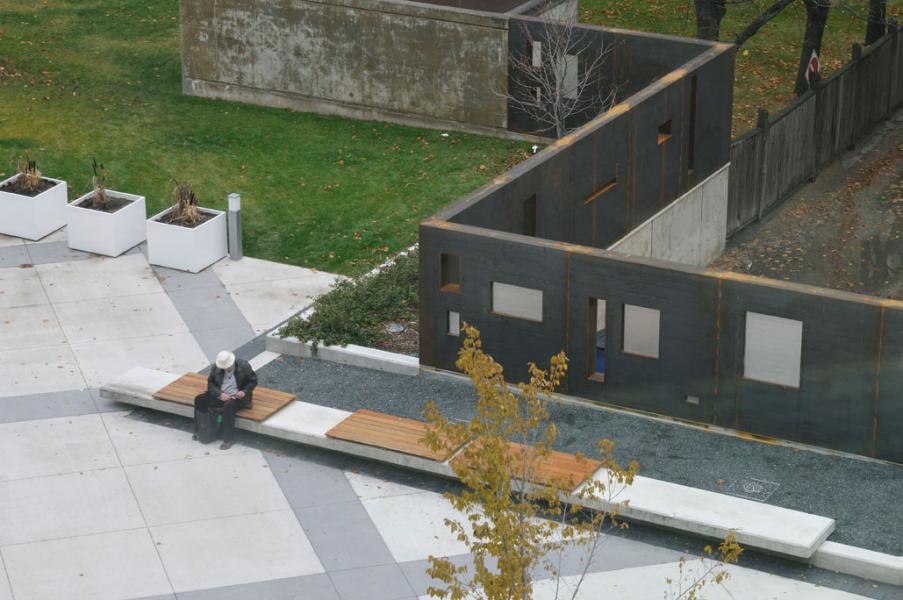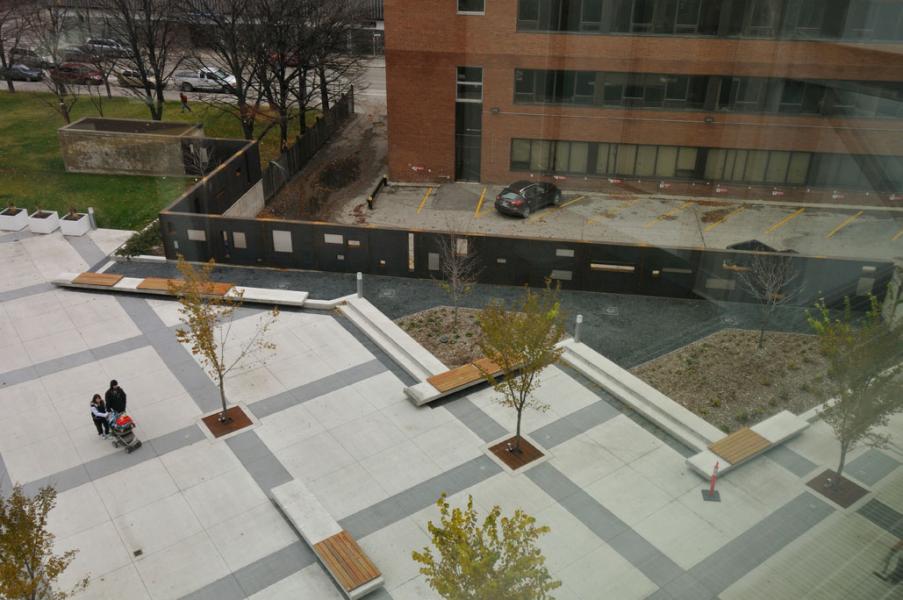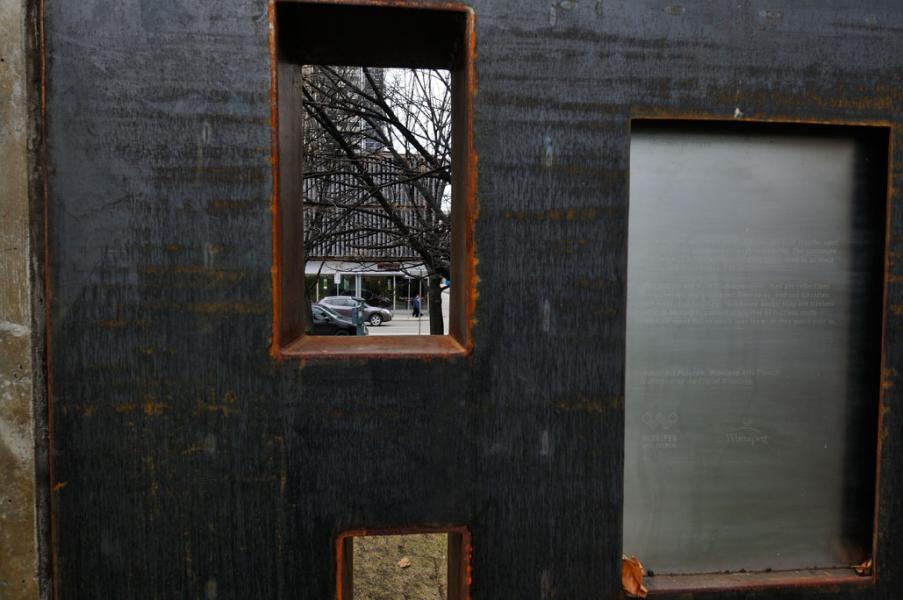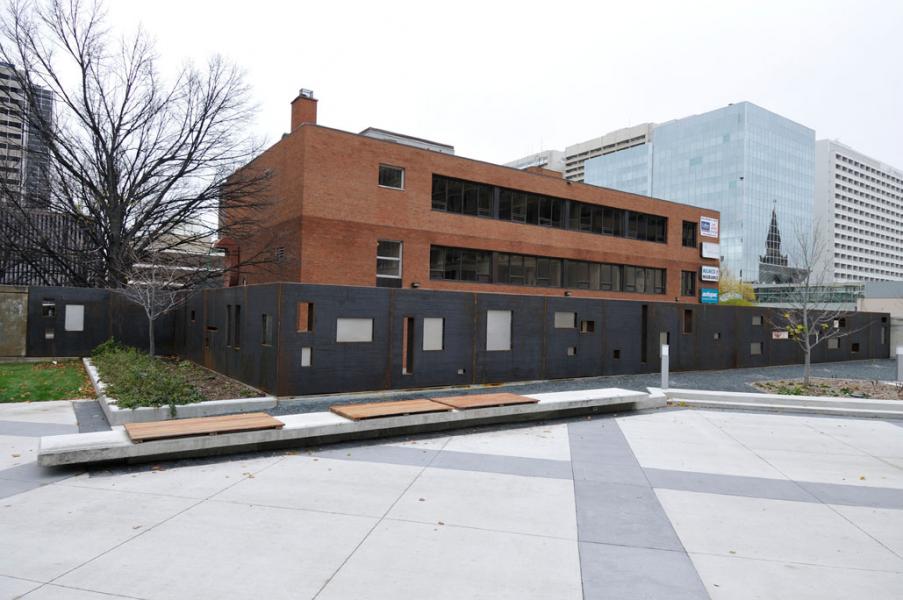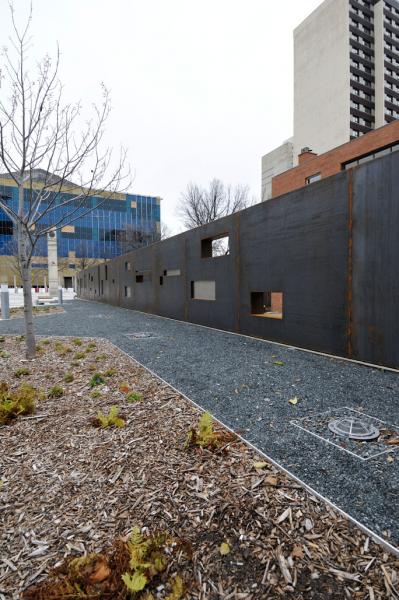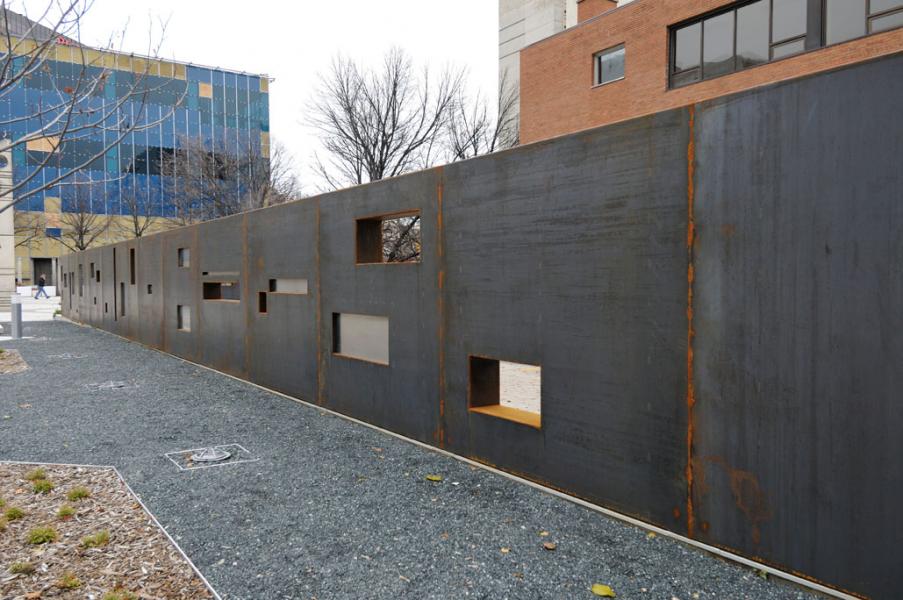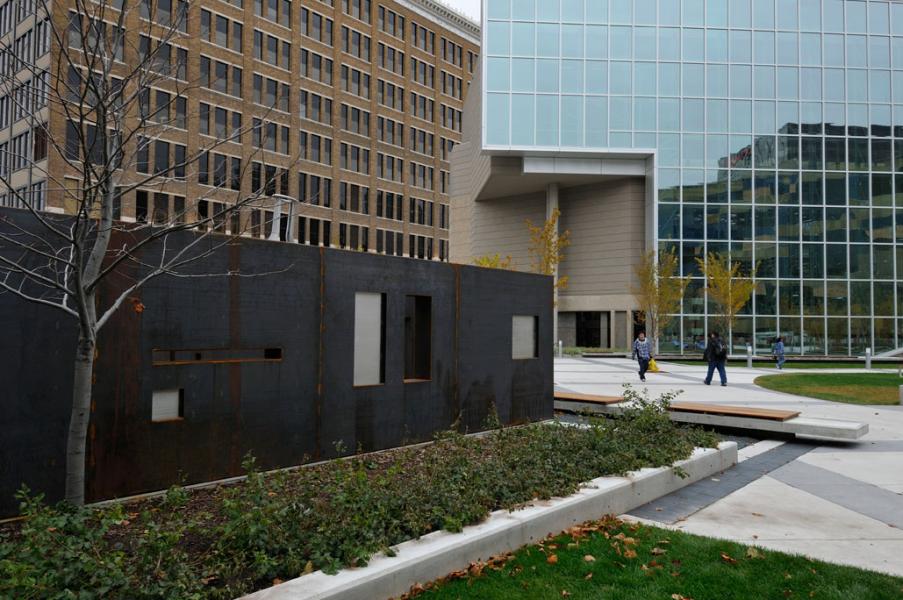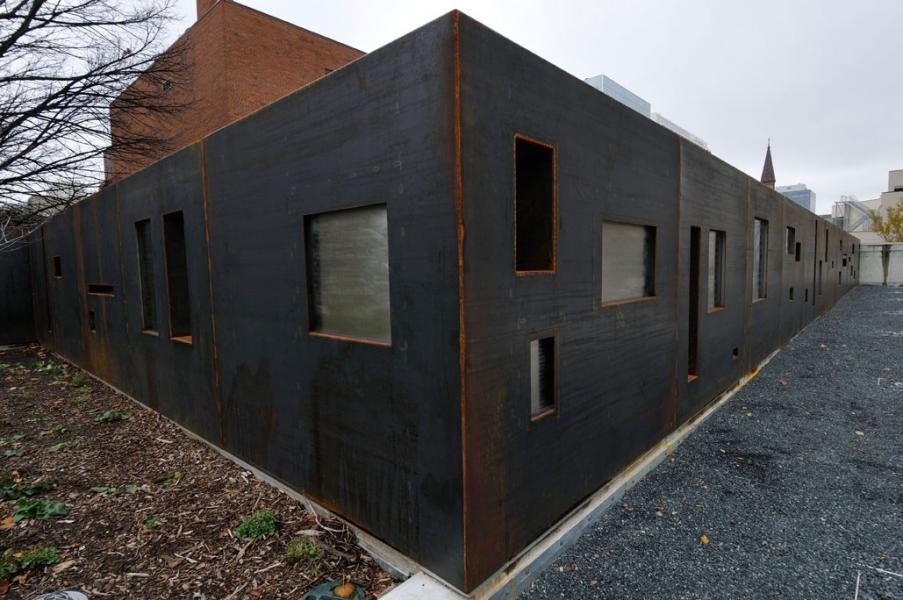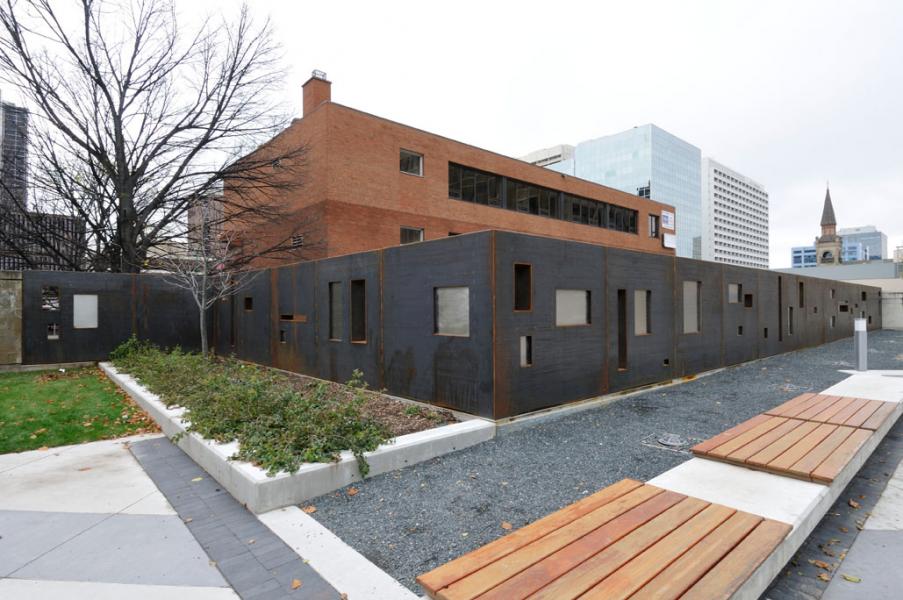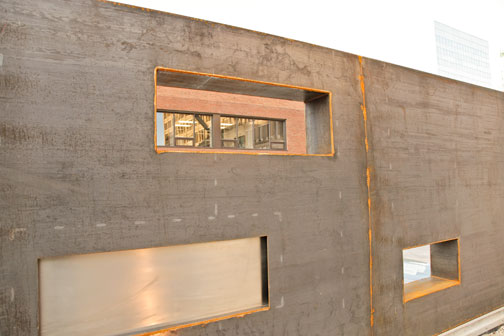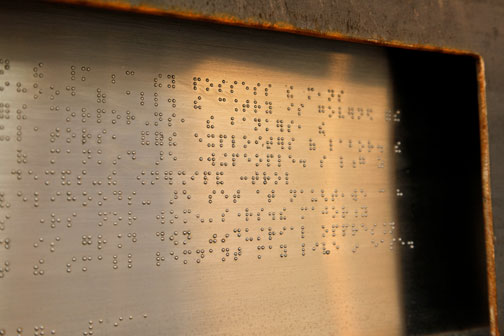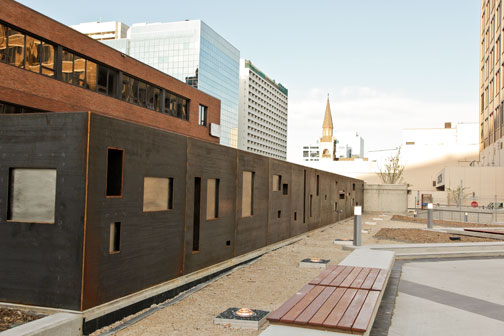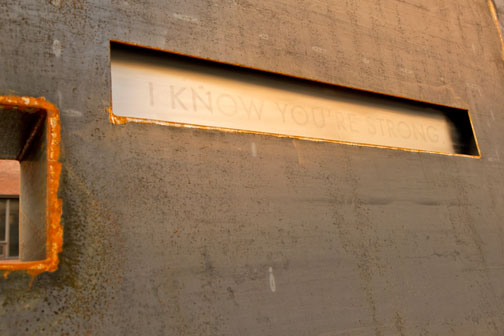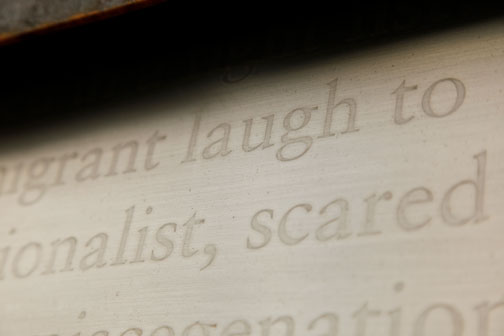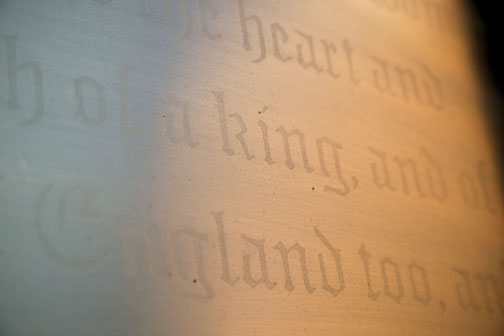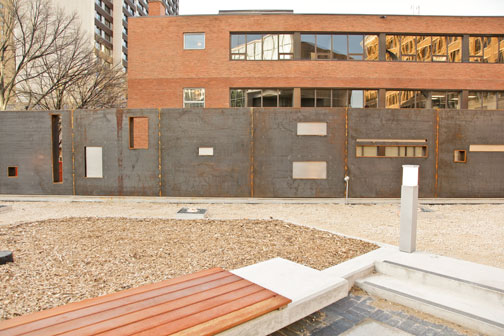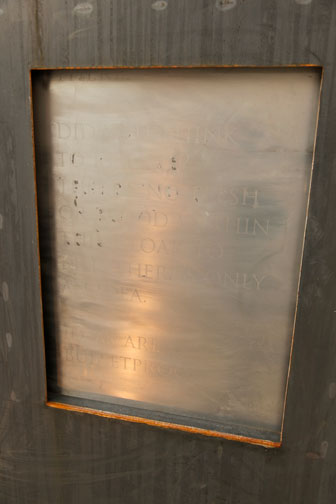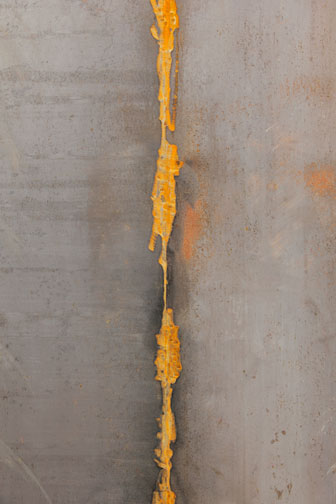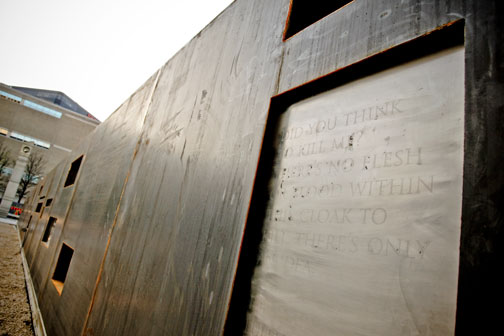Sentinel of Truth
| Address: | 251 Donald Street (in Millennium Library Park) |
|---|---|
| Constructed: | 2012 |
| Architects: |
|
| Artists: |
|
More Information
Darren Stebeleski is a Winnipeg-based graphic designer and artist. Graduating from the University of Manitoba School of Art in 1996, he worked at various graphic design studios before co-founding Neuhaus Design in April of 2000. Darren relocated to Scotland in 2004 to attain a Master’s Degree in Visual Communication from the University of Edinburgh. Upon returning to Winnipeg in 2006, he worked as a Senior Designer at Urban Ink while also instructing in the U of M’s graphic design program. In 2010, Darren took a position at Martha Street Studio as Education & Outreach Coordinator, while simultaneously launching an artistic practice. Most recently, he joined the full-time Graphic Design faculty at Red River College in the fall of 2011.
Design Characteristics
| Materials: | stainless steel, steel Weathering steel, stainless steel |
|---|
- The work was inspired by the library itself. Viewing libraries as sentinels, protectors of truth and ideas that stand as pillars of our society, the artist created a work that would represent them. The piece, created specifically for the Millennium Library Park, is also a sentinel, a wall of weathering steel, covering and protecting bits of text inscribed into stainless steel. The texts on the wall are short excerpts from fiction, poetry and nonfiction, all collected from various eras and locations, represented in different fonts and sizes.
- Along with the literary passages, the materials of the piece were chosen carefully. As an outdoor work, the weathering steel will acquire a natural orange patina over time, much like copper becomes turquoise. The outcome will be a powerful image, but also quiet and contemplative. Sentinel of Truth was created through the Winnipeg Arts Council’s Public Art Program.
Artist’s Remarks
The writer Ray Bradbury—who sadly passed away this year—is someone I very much admire, and he once said “You don’t have to burn books to destroy a culture. Just get people to stop reading them.” Sentinel of Truth is about the dangers of censorship, but even more so it is a monument to libraries and librarians. Our stories define us, whether it’s the Odyssey or it’s my father telling his grandchildren about his youth. Without our stories, you, me—everything—amount to nothing. They entertain us, of course, but more than that we use them to explain our lives to us.
I would like that if when you look at Sentinel of Truth, you picture that beneath this weathering steel shell, there exists a stainless steel obelisk. Etched onto this obelisk is every story ever written. They are etched lightly, so they are fragile. The weathering steel is the library, the unglamorous armour whose job it is not only to house these words and offer them to us for our consumption at no cost, but to also to defend them for us. Libraries are the armour protecting our fearless truth, and librarians are the guardians and curators of that truth.
While I’ve worked on the wall I’ve often heard people in the park say “I didn’t know the text was there till I came right up to it” and “it flickers into and out of view,” and my answer to that has been that the truth is really like that—it can depend entirely on one’s particular perspective or point of view. And it is a fragile thing, open to corruption and to censorship. When you see an artifact perfectly preserved in a museum or a gallery it’s easy to get complacent and think they’ll always be there, but we know through bitter experience it’s not always like that. We learned that from Hitler and Stalin and Bashar al-Assad and countless other dictators and governments who would censor their people. To paraphrase the Jeannette Armstrong excerpt on the wall from her book Slash, “You protect culture by using it.”
Wherever we find censorship of our collective stories occurring we must fight it. By offering free and unrestricted access to information to the public, this is what libraries do every day and have done since the beginning of their existence. This is what has made them a pillar of free and open societies. We must never forget that and we must always help them to continue on with everything we’ve got.
Links & Related Places
- Emptyful, 251 Donald Street (in Millennium Library Park)
- The Millennium Library, 251 Donald Street
